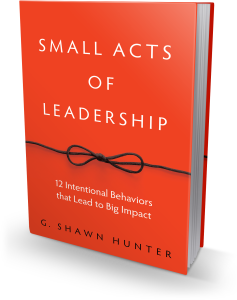How We Spend Our Days Is How We Spend Our Lives
How we spend our days is, of course, how we spend our lives.
– Annie Dillard
Does this sound like you?
You rush around in the morning, get the kids off to school, and hustle to get to work on time. You commute twenty to forty minutes every day. You have your own cube, but it feels like assigned seating. There is stark overhead fluorescent lighting. You attend at least two meetings a day (sometimes more), both of which you didn’t need to attend, and could have been resolved in twenty minutes. But they drone on for an hour, only because they were scheduled to.
Your boss is well-intentioned, but he is so busy appeasing his own boss that your ideas are ignored. There’s no clear guiding vision that you can fathom, other than to fix problems, put out fires, and figure out how to charge the customer more. Meanwhile you watch your colleagues kiss your boss’ ass anyway to get ahead, and try to look more valuable.
Information comes late and loud. You frequently feel like you are the last person to learn about new initiatives. By the time you get the news, it’s presented to you as a “bag of snakes” and you are given a stack of responsibilities to get it on a “glide path” you didn’t know even existed at the beginning of the day.
You feel like half most of what you do is busy work. The emails keep piling up, and you keep hearing expressions like “do more with less.” You get meeting invitations you feel you can’t decline. So you keep working. In fact, if you are like most working Americans, you worked 365 hours last year in unpaid overtime, and didn’t take all of your vacation.
You are stressed. And you feel guilty because you haven’t taken time to exercise and deal with your stress. So you go for a run, and then feel guilty about taking time to exercise while the dishes pile up and the kids sit home and watch Netflix.
Or does this sound like you…
You work from home, coffee shops, or where ever you happen to be at the moment. You go in to the office when it matters to meet colleagues, not to punch a clock. You are invited to conference calls and kept in the loop, but attend only the ones relevant to your projects – the ones you are most interested in and can make the biggest impact.
You take time to sleep, and to exercise. Maybe you are the 5am boot-camp type, but you don’t have to be. You can go for a run at 11am if you want to. You just block that time. You also take time to volunteer at your child’s elementary school. You don’t hide that either. The idea never occurred to you.
You have a great relationship with your boss. You don’t dread interactions with her. Quite the opposite, you call her up anytime you have an idea to share, or need an opinion or support on a project. You always leave those interactions encouraged – even emboldened. She makes you feel like anything is possible. She generates energy in everyone around her.
Every time you sit in on a meeting with your boss, and your boss’ boss, they are constantly giving credit, and constantly giving the limelight, while meanwhile accepting accountability for anything that goes wrong. The COO asks, “We got a big customer win?” Your boss says, “Yes, but it wasn’t me. It was this team that made it happen.”
There’s no gossip, no trash-talking about management over beers on Friday. No fear of your job getting “bangalored” (outsourced to India). You live in a culture that is focused on outputs, not inputs – results, not volume of email noise.
You have friends at work. You do things with each other’s families for fun. You create quality products, and you know it. You take pride in your work, and your colleagues do too.
What’s the difference between these two stories?
The difference is the leadership. In life story #2 the leadership has flipped the culture. It’s a style of leadership that is generous of credit, inclusive of ideas, highly communicative, and purpose-driven. But these people also expect excellence, and have high expectations of the people in the company. And you understand this is a compliment. When remarkable people also expect remarkable results from you, that’s a compliment.
The people who lead companies in life track #2 are creating the biggest innovations, attracting the most sought-after talent, and driving the greatest value impact in the world.
Here’s the big idea: In these stories, who are the leaders? It’s you and me. We get to lead by example. Don’t tell me, “But my boss…” No, it starts with each one of us, and the attitude and action we take every day.
- ____________________________________________________

Last summer, my son and I bicycled across America with two other dads and their teenagers. We published a new book about it called Chasing Dawn. I co-authored the book with my cycling companion, the artist, photographer, and wonderful human jon holloway. Buy a copy. I’ll sign it and send it to your doorstep.



